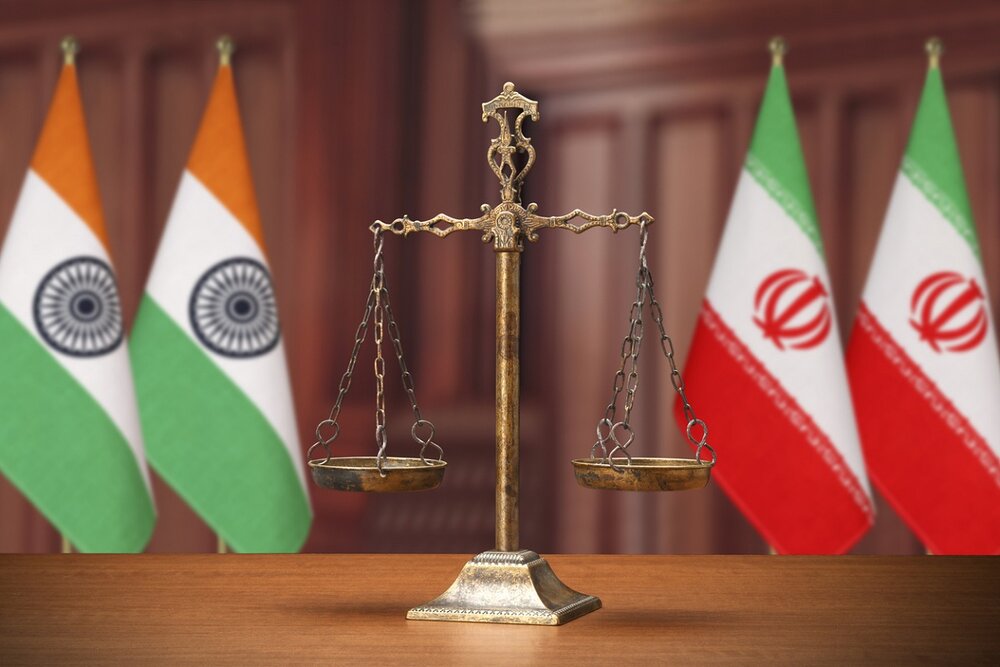India can only blame itself for Iran—China strategic partnership

TEHRAN - Indian media has strongly criticized a nascent Sino-Iranian partnership plan that could cloud India’s investments in some Iranian development projects, but an India expert tells the Tehran Times that India’s decision to abide by U.S. sanctions on Iran has led to its loss of the Iranian market.
Iran and China are carefully negotiating over a strategic partnership plan that will raise the economic cooperation between Tehran and Beijing to unprecedented levels. The plan, officially known as “Comprehensive Cooperation Plan between the People's Republic of China and the Islamic Republic of Iran,” has raised some concerns in many countries in the region and beyond, though it is yet to be finalized.
India is one of the countries that clearly voiced concerns over the deepening of economic ties between its archrival China and Iran. It sees the plan through the prism of its competitions with China and Pakistan.
“India has literally lost Iran, probably for good. Now that Iran has landed in the Chinese jaws, chances of any release from its deadly grip is almost remote. That’s the fact of life and the sooner India gulps this unpalatable truth, the better,” said an op-ed published by the New Delhi Times newspaper.
The newspaper put the Iran-China cooperation plan in the context of India’s competition with China and the risks it poses to the Indian investments in the Iranian port of Chabahar. It was also keen to take a jab at Pakistan.
“Pakistan need (s) not jump with glee. Chabahar port will adversely impact Pakistan’s Gwadar port also. This also means that the CPEC [China–Pakistan Economic Corridor] is out. Looks like China has abandoned Pakistan-its iron brother,” the newspaper added.
In separate articles, the Indian think tank, Observer Research Foundation (ORF), echoed the same concerns.
“Iran is already part of China’s Belt and Road Initiative (BRI), and in September 2019 China announced its intent to infuse $400 billion worth of investments in Iran’s oil and gas, infrastructure and transportation sectors. These massive numbers are a direct challenge to both Western, and more specifically, American economic might on a regional and global stage, but also creating new geopolitical flashpoints as Beijing expands its reach around the world, which now includes a base in Djibouti, operations of Gwadar port in Pakistan, ever-increasing naval port calls across the world and so on,” the ORF said in an article authored by Kabir Taneja, a fellow with Strategic Studies Program.
Taneja added, “The U.S.–China tussle arriving in Iran would be a new challenge within a challenge for New Delhi, which has over the past few years been balancing its relations with the U.S. and Iran.”
With respect to the 25-year Iran-China partnership plan, India’s concerns center around a possible Chinese investment in Chabahar port, which some Indian analysts call it “India’s strategic magnum opus in Iran,” and the prospect of China finding a naval footprint in the Western Indian Ocean, where New Delhi has strategic interests.
“New Delhi’s strategic interests are ‘weighted west’: the oil flows are from the west, the bulk of trade is west, as is the diaspora, and India major investments. Not only are India and the U.S. badly coordinated in the Western Indian Ocean, but observers also say Washington’s Iran policy actively impinges on Indian interests,” wrote Abhijit Singh, a former Indian naval officer, who currently heads the Maritime Policy Initiative at the ORF.
Indian analysts also express concern over the possibility that China replaces India in development projects in Iran such as Chabahar port and the Chabahar-Zahedan railway, but an India expert told the Tehran Times that India’s concern is a problem of its own making.
“India was involved in Chabahar port’s development project, and it was expected to complete the project as soon as possible, but India didn’t complete the project due to U.S. pressures. The Indian government was eager to move forward with its investments at Chabahar port, but the Indian firms were dragging their feet about continuing the project because they had business dealings with American firms,” Mohsen Rouhisefat, an India expert, told the Tehran Times, adding that Iran can’t wait for India to complete the port project at a later time, because it urgently needs to develop its economic infrastructures given its growing population.
According to the expert, Iran has already invested $1b in Chabahar port, and it invited other countries like Australia and Japan to invest in the port, while India was working there.
“The Chabahar port development project includes five phases. Only one phase has been developed with the participation of India. Iran has invited all countries to make investments in the port, and thus a possible Chinese investment in Chabahar port is natural,” said Rouhisefat, noting that the Chinese have already paid a visit to the port.
He also said that Iran and India have signed an agreement similar to the current Iran-China one about two decades ago, but the Indians failed to take advantage of their agreement with Iran.
Under the Iran-China agreement, Tehran will supply Beijing with oil for a period of 25 years in exchange for Chinese investment in many sectors in Iran, including oil and gas projects. The Indian media expressed concern that the agreement could allow for China to deploy its navy forces in areas of great importance for India like the Western Indian Ocean.
However, Rouhisefat ruled out the possibility that China deploy military forces according to the agreement, saying the Iran-China partnership plan is only an economic blueprint that doesn’t entail any military aspect.
SKM/P
Leave a Comment